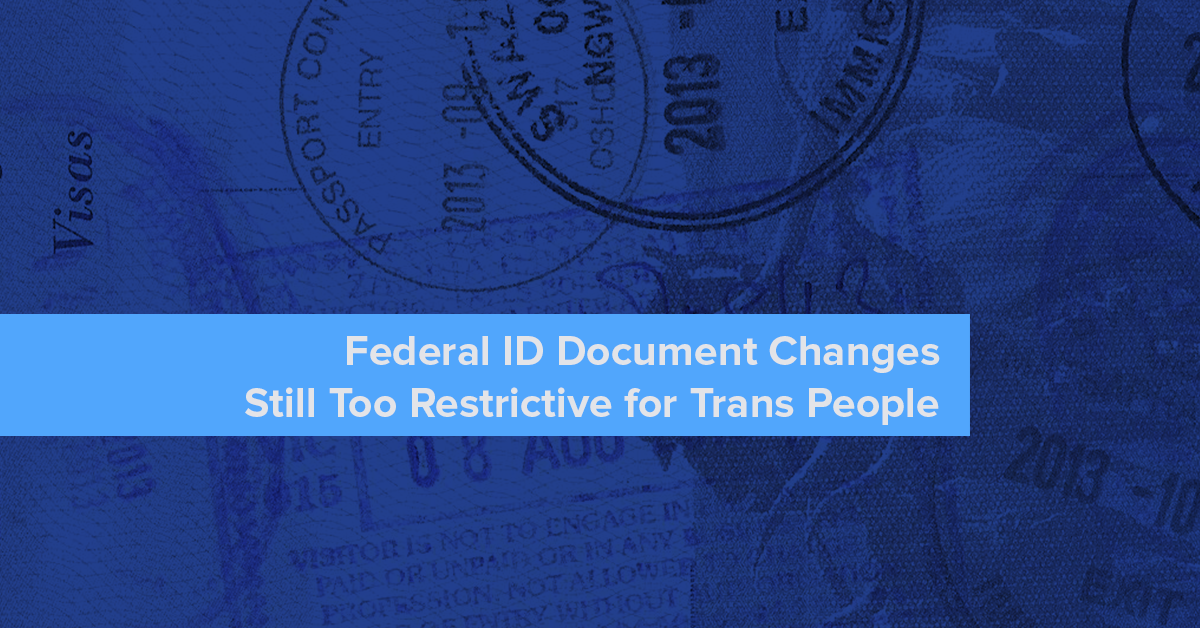Federal ID Document Changes Still Too Restrictive for Trans People
Image

For some time now, NCTE has been asking the federal government to update its policies for updating gender on US passports, green cards, Social Security records, and other key documents. Not long ago it was impossible for most transgender people to obtain documents that matched their identity and daily life because of policies that required proof of surgical procedures. When those policies were improved a few years back, it made a big difference for many trans people, but not everyone.
Federal policies still make it harder for transgender people to update their IDs and records than it is for trans people in several other nations, including Argentina, Bolivia, Ecuador, Denmark, Ireland, Malta, and even our neighbors in Canada. Federal documents are also harder to update than state IDs in at least 20 states—including states like Alaska, Virginia, Ohio, and West Virginia—as well as DC and Puerto Rico. This is important, because according to the National Transgender Discrimination Survey, 44% of transgender people report being harassed, asked to leave a place of business or even assaulted when presenting ID documents that don't match their gender identity.
What makes federal document policies more burdensome? First, they all currently require documenting “appropriate clinical treatment for gender transition.” While meant to be a flexible standard reflecting the individualized nature of transition, in practice this has proved confusing, with many health care providers assuming it requires surgery or years of hormone therapy, and some refusing to sign letters for patients who don’t meet those criteria.
Second, current federal policies require documentation from a physician—not any other health care provider. But surveys have shown that because of poverty and discrimination, as many asfour in ten transgender people don’t have a primary care doctor at any given time. Requiring letters from physicians is out of sync with how health care for gender transition actually works, since clinical social workers and psychologists often play a primary role in making diagnoses and recommending treatment. A patient may have a treating psychologist but no current doctor, or may have a primary physician who knows next to nothing about transition-related care. And a growing number of Americans—whether they’re transgender or not—get their primary care from advanced practice nurses and other non-physician providers. When trans people don’t have a doctor providing their transition-related care, they likely need to find one who is willing to review their medical history and write a letter. This won’t be covered by insurance, and could double or triple the cost of your document change.
When the current federal policies were adopted starting in 2010, they were innovative—ahead of most states and almost every other nation. That’s no longer true. Policies that make accurate ID simpler and more accessible for transgender people have proven themselves an effective good government practice—it’s time for the federal government to catch up.
For more information about state and federal ID document policies, visit ourID Documents Center.

